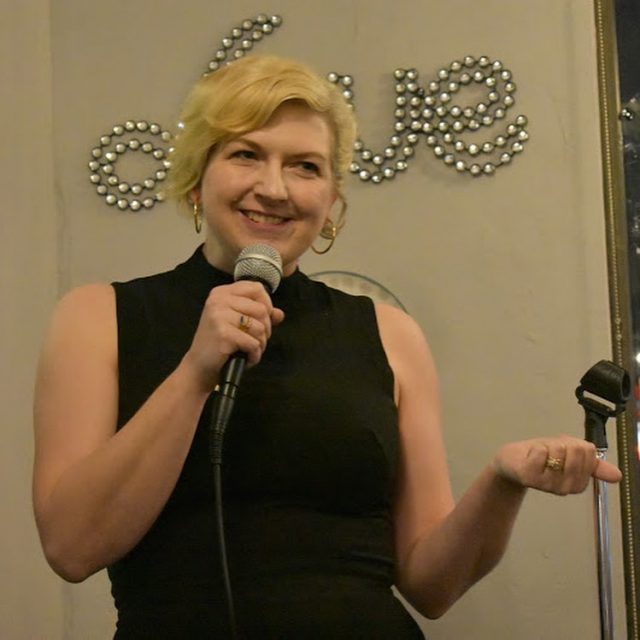National AccessAbility Week – Pamela Findling on her personal experience and things we can do about accessibility during COVID-19
National AccessAbility Week – Pamela Findling on her personal experience and things we can do about accessibility during COVID-19

May 31 to June 6 is the National AccessAbility Week, a week that celebrates the valuable contributions of Canadians with disabilities and recognize the efforts of individuals, communities and workplaces that are actively working to remove barriers to accessibility and inclusion.
Pamela Findling, the Director of Training, Health, and Wellness at BCRTC shares her personal experience with us and talks about things we can do about accessibility in the era of COVID-19.
What does accessibility mean to you personally?
Pamela – I’ve been hearing impaired since I was little. Then, as an adult, I went profoundly deaf and received a cochlear implant six months later. With my implant, I hear and get by really well and people often know me for awhile before they realize I’m hearing impaired. It’s a daily effort though, and it takes work for me to make sense of the sounds I’m hearing.
For me personally, accessibility is about being able to be independent and not having to rely on others.
Part of that is also feeling safe and supported when I do need to ask for help or changes to participate as fully as possible. I recognize that people and organizations often don’t realize the impacts of their design or implementation decisions on people with disabilities, which is why I really appreciate the ones that take the time to ask questions and make adjustments as they learn more.
To me, accessibility is also about having options available and recognizing that there’s no one-size-fits all. What I need as a deaf person with a cochlear implant could be much different than what another deaf person with a cochlear implant needs.
What are some small things you do in your day to make everything work for you in terms of accessibility?
Pamela – So much that I don’t even realize anymore!
I don’t hear anything out of my left ear, so in meetings and groups I sit with my right ear towards the most people. I also make sure that I can see people’s faces, since I read lips a lot.
It’s actually much easier for me to follow meeting on Skype and Zoom – I’m happy to see they’re being used more than conference calls now! The Bluetooth on my phone gives me a direct link to my implant and blocks out background noise, so I use that instead of the computer audio whenever I can.
As to other everyday activities, I use the Next Stop signs on the buses, closed captioning on TV and at the movies. I Google lyrics for new songs, turn off music and loud fans when I’m talking to people, ask strangers to repeat intercom announcements for me, and sometimes, when the noise is too much, I turn off my cochlear implant processor to have some quiet. I also ask people to repeat themselves, or to switch seats—people are always happy to help, but it’s important that I speak up.
How do your personal experiences inform your professional interests and work?
Pamela – Losing my hearing shaped so much of who I am, and I’ve always been interested in what other people’s stories are and sharing those stories. I was in communications for a lot of years. I like writing and visual elements because it’s something I’ve personally always been able to count on to stay connected to people. Now I lead the Training and Occupational Health teams, which is meaningful for me personally.
When I went profoundly deaf and was waiting for my cochlear implant, I was working as a co-op student in a new city, with no family there. I was devastated and planned to quit my job and move home, but my manager said “No. I’m not going to let you do that. You still have a lot you can do.” He set me up with the Occupational Health Nurse and she was amazing to help us figure out how I could complete my work term and contribute meaningfully.
That support and being able to keep working was so important for my mental health and recovery, and I’m still so grateful for it. Because I know how much that meant to me, I really value the work of Training and Occupational Health teams. I know they can literally save lives.
The pandemic has posed new challenges for our communities, potentially aggravating some of the existing accessibility barriers. How can we work together to create more accessible and inclusive working environments during these uncertain times?
Pamela – A prime example of this that people might not think of: I haven’t figured out how I’m going to navigate a mask-filled world yet where I can’t read lips!
I think the biggest thing is to ask questions and be aware that people have struggles and barriers that we don’t know about. I’m always happy to answer questions from people about my hearing, because it helps them better understand me and how we can best work together.
Be kind and patient. Know that we’re not always going to get it right at first, but be open to learning how we can do better. Don’t make assumptions: something that worked well six months ago might not work now because things have changed and could have a bigger impact than we realize (like masks!). And we need to advocate for ourselves and be honest about what we need.





